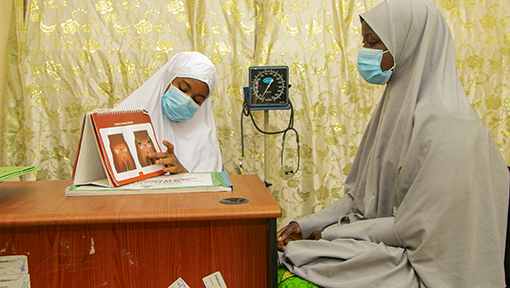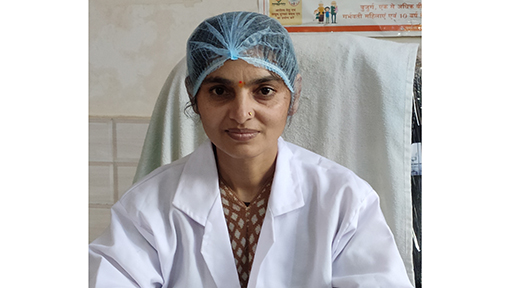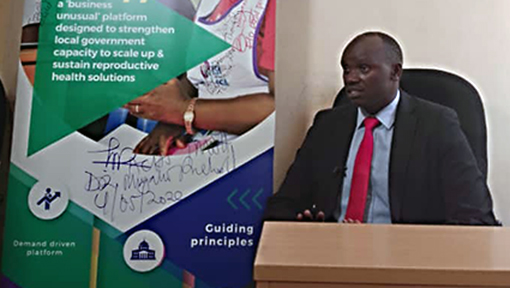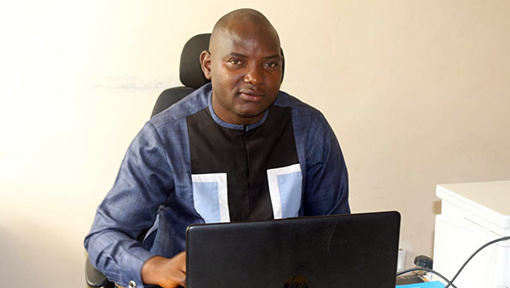TCIHC Urban Tales: ASHA’s Contraceptive Reminder Technique Spreads Through Her Community
Contributors: Shafique Khan and Parul Saxena
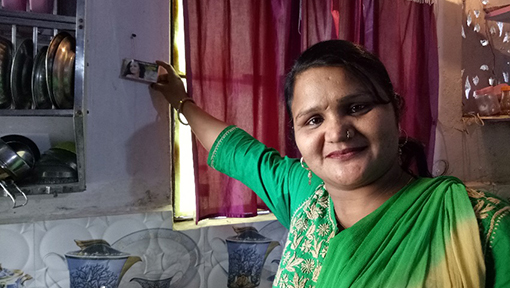
Nazreen’s reminder method has worked for others in her community too.
ASHA Nazreen Gulzar developed a novel way to remind herself to take her contraceptive pill each week so she does not miss a dose. After she shared her technique with women in her community, they started doing the same thing.
Like Nazreen, more than 6,000 urban ASHAs have become more effective as health educators and promoters in their communities. The Challenge Initiative for Healthy Cities (TCIHC) supports local governments in Indian states, like Madhya Pradesh (MP), to strengthen the capacity of urban ASHAs through its ‘Lead-Assist-Observe’ coaching and mentoring model.
The following story is part of TCIHC’s series called “Urban Tales,” occasional real-life stories of women and girls benefiting from TCIHC’s work supporting local governments to implement evidence-based family planning and adolescent and youth sexual and reproductive health (AYSRH) solutions.
As the pressure cooker whistled, Nazreen – an Accredited Social Health Activist (ASHA) and mother of two living in Bhopal, Madhya Pradesh – went straight to the kitchen where her eyes fell on her non-hormonal weekly contraceptive pill Chhaya hanging right next to her utensil rack. She smiled and immediately took her pill. This is her way of reminding herself to take her pill as prescribed each week given that she acknowledges being forgetful:
“I attribute non-regular use of family planning method to my forgetfulness,” she said
She explains below what made her decide to choose Chhaya and how she came up with her method of reminding herself to take it.
Two years back, we were using condoms, but I always remained fearful of becoming pregnant as my husband did not use them consistently. Will I get my periods? I found myself tormenting over the same question. In addition, in my role of an ASHA, I counsel couples in my slum area about the various contraceptive methods available to them at no cost. I motivated nearly 96 women from my catchment area to adopt a contraceptive method in the last four years. Yet, I was living in fear of unwanted pregnancy myself.
In 2017, when the Government of India launched two new contraceptives – Antara (injectable contraceptive) and Chhaya (Centchroman/non-hormonal pill) – TCIHC team built my understanding of these methods and enabled me to counsel couples on these methods also. This non-hormonal pill interested me as it was to be taken only once a week. I began taking it but I missed a dose just two weeks after I had started it. It was then that I devised a reminder for myself. I started hanging the packet near the cooking area in the kitchen. This way I am constantly reminded of my Chhaya dose and ever since I have never missed any dose.
I realized that this physical reminder worked for me. I shared this ‘mantra’ with women in the community who have adopted a method which requires reminders, like oral contraceptive pills, injectable contraceptive and condoms. They liked the idea, and is now used by several women in the community. When I advise women on family planning, I always give my personal experience of how my life has changed ever since I started continued use of family planning methods.”

